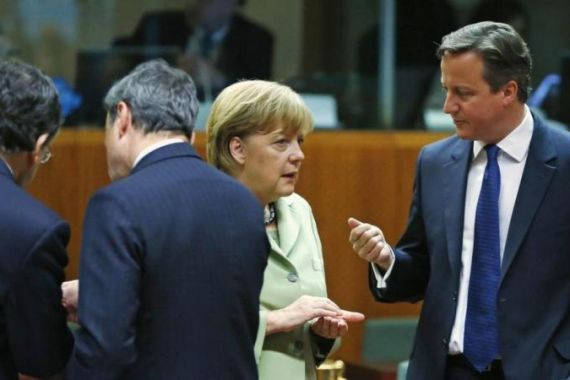EU to open membership talks with Serbia
European leaders agree on opening accession talks with Serbia by January, as bloc continues to enlarge to the east.

European Union leaders have agreed to open EU membership talks with Serbia by January as the bloc continued to enlarge to the east.
The EU president, Herman Van Rompuy, announced at the close of a two-day summit on Friday that the bloc’s 27 leaders had decided to open accession negotiations with Serbia “at the very latest in January”.
The milestone decision for the once pariah Balkan state follows its capture of wanted war fugitives and an historic deal in April with its breakaway former province of Kosovo to mutually mend ties.
It also comes 48 hours before Croatia formally becomes the 28th EU member state.
Van Rompuy said the EU had also agreed to go ahead with negotiations on an association deal with Kosovo, though five EU members do not recognise its unilateral 2008 declaration of independence.
‘Courageous decisions’
“These two decisions are a direct result of the courageous decisions taken by Serbia and Kosovo,” Van Rompuy said at a news conference, referring to an April pledge to normalise ties between the two former foes.
The Serbian Prime Minister, Ivica Dacic last week held out hopes of bringing the country into the EU fold within a quick four to five-year span should Belgrade win the EU summit’s support.
Candidate countries first must align their domestic legislation to the EU standards in 35 sectors, known as chapters, a process that can take years.
“We are not keen on having these talks last 10 years, we hope in four or five years,” Dacic said.
The decisive factor opening the EU door to Serbia was the EU-negotiated deal struck on April 19 between Belgrade and Pristina to normalise their ties.
In March 2011, the EU launched talks to help the two normalise relations and solve everyday problems for their citizens, such as the mutual recognition of university degrees and property records.